Exercise Diet

Can diet and exercise affect memory according to scientific studies ?
Diet and exercise can positively impact memory, asDiet and exercise can positively impact memory, as a healthy lifestyle that promote cognitive while regular physical activity increases blood flow to the brain, reduces inflammation, and promotes the growth of new neurons. Conversely, a poor diet lacking in essential nutrients and lack of exercise can have negative effects on memory over time. Therefore, adopting a healthy lifestyle that includes a balanced diet and regular exercise is essential for maintaining good memory and overall brain health.

Can taking sports nutrition supplements compensate for a poor diet and lack of exercise ?
Sports nutrition supplements cannot fully compensate for a poor diet and lack of exercise. While these supplements can provide certain nutrients essential for athletic performance, they cannot replace the overall benefits of a healthy lifestyle. A balanced diet and regular exercise are crucial for maintaining good health and supporting athletic performance. Supplements should be used cautiously and with guidance from a healthcare professional to ensure they complement your overall lifestyle rather than replace it.
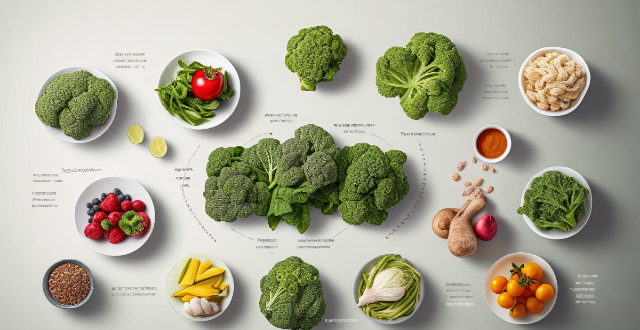
Are there any specific diets that enhance exercise efficiency ?
Yes, there are specific diets that can enhance exercise efficiency. These include a high-carbohydrate diet for energy, a low-fat diet for weight management and cardiovascular health, a high-protein diet for muscle recovery and maintenance, and a plant-based diet for optimal nutrient intake. Examples of foods in each diet category are provided, along with the benefits they offer for exercise efficiency. It is recommended to consult with a healthcare professional before starting any new diet plan.

What are some common misconceptions about weight loss and exercise ?
This text discusses common misconceptions about weight loss and exercise, including the idea that skipping meals leads to weight loss, spot reduction is effective, more exercise equals more weight loss, weight training makes women bulky, cardio is the best way to lose weight, fad diets offer quick fixes, all calories are created equal, and you can out-exercise a bad diet. It emphasizes the importance of understanding these misconceptions to adopt healthier habits and set realistic goals for improved health and wellness.
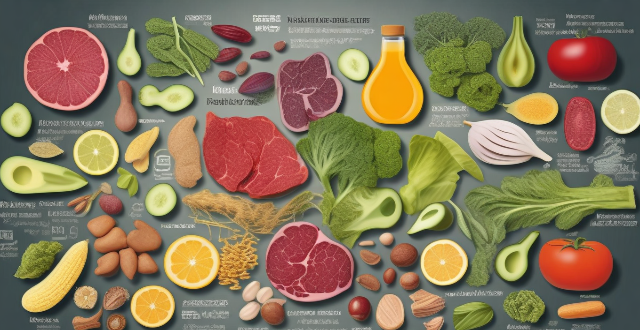
How does diet affect personal health ?
The article discusses the importance of a healthy diet in maintaining good health. It explains what constitutes a healthy diet and its benefits, such as reducing the risk of chronic diseases, improving mental health, managing weight, strengthening the immune system, and improving sleep quality. The article also provides tips for maintaining a healthy diet, including eating a variety of foods, limiting processed foods, watching portion sizes, being mindful of eating habits, getting enough sleep, and staying active.
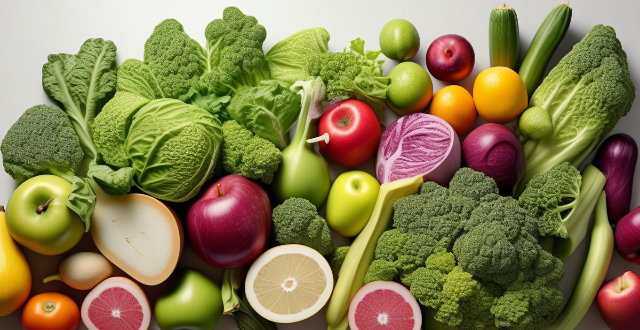
How can I improve my athletic performance through diet
Improving athletic performance through diet involves eating a balanced diet, increasing protein intake, consuming plenty of fruits and vegetables, drinking enough water, avoiding processed foods, eating before training or competition, and considering supplements. A balanced diet includes carbohydrates, proteins, and healthy fats in the right proportions. Protein is essential for building muscle and repairing damaged tissues, while fruits and vegetables are rich in vitamins, minerals, and fiber. Drinking enough water is crucial for staying hydrated during exercise. Avoiding processed foods can prevent harm to your performance and health. Eating before training or competition can provide energy and prevent fatigue. Supplements such as whey protein powder, amino acids, and BCAAs can improve performance but should be taken under the guidance of a nutritionist or doctor.

What is a good marathon diet plan ?
A good marathon diet plan should provide the necessary nutrients and energy to support an athlete's training and performance during a marathon. It should include a high-carbohydrate diet, protein needs, and healthy fats. A high-carbohydrate diet should provide around 60-70% of total daily calories from carbohydrates, while protein needs should provide around 10-20% of total daily calories. Healthy fats should make up around 20-35% of total daily calories. Good sources of carbohydrates include whole grains, fruits, vegetables, legumes, and low-fat dairy products. Good sources of protein include lean meats, poultry, fish, eggs, nuts, seeds, and plant-based proteins like tofu and tempeh. Good sources of healthy fats include olive oil, avocados, nuts, seeds, fatty fish (such as salmon), and dark chocolate.

How can women ensure they are getting enough calcium in their diet ?
Calcium is crucial for women's health, especially for maintaining strong bones and teeth. Women can ensure they are getting enough calcium by knowing their requirements, including calcium-rich foods in their diet, considering supplements if needed, and maintaining a healthy lifestyle with regular exercise and limited alcohol consumption. It's important to consult with a healthcare professional for personalized advice.

Can sports supplements replace a healthy diet ?
Sports supplements can enhance performance and provide targeted nutrients, but cannot replace a healthy diet. Whole foods offer complete nutrition necessary for overall health. Supplements may cause side effects and are expensive. Prioritize a well-balanced diet and use supplements judiciously to support specific goals.

What kind of diet is recommended for women who want to lose weight through exercise ?
Recommended diet for women who want to lose weight through exercise includes lean protein, complex carbohydrates, healthy fats, and plenty of water. It's important to eat a light meal or snack before workouts and refuel with protein and carbohydrates after exercising. Portion control and avoiding empty calories are also crucial for weight loss success.

What kind of diet do celebrities follow ?
Celebrities maintain their physique and appearance through various diets, each with its benefits. Clean eating focuses on whole foods, boosting energy and digestion while aiding weight loss. The vegan diet eliminates animal products, reducing the risk of chronic diseases and improving skin health. The keto diet promotes rapid weight loss, increased energy levels, and reduced inflammation. While these diets work for some celebrities, individual needs vary, and it's essential to consult a healthcare professional before making significant changes to one's diet or lifestyle.

Is it possible to lose weight without doing any exercise ?
Losing weight without exercise is a topic of interest for many individuals who want to shed pounds but may not have the time, ability, or desire to engage in physical activities. While exercise has numerous health benefits and can significantly aid in weight loss, it's not the only factor that influences your body weight. Here are several ways you might lose weight without traditional forms of exercise: - Dietary Changes: Eating a calorie-deficient diet, focusing on whole foods, practicing portion control, using smaller plates, limiting processed foods and sugars, and reading labels for serving sizes and calorie counts. - Lifestyle Changes: Increasing Non-Exercise Activity Thermogenesis (NEAT) by being more active in daily life, improving sleep habits by establishing a sleep routine, and managing stress levels through meditation, deep breathing exercises, and yoga. - Behavioral Changes: Keeping a food diary, setting realistic goals with small, sustainable changes, seeking professional advice from a registered dietitian or nutritionist, and creating personalized plans based on unique health profiles and preferences.

How do I ensure I'm getting enough nutrients on a vegetarian diet ?
This topic discusses the essential nutrients to watch on a vegetarian diet and provides tips for meal planning. It highlights key nutrients such as protein, iron, vitamin B12, calcium, vitamin D, and omega-3 fatty acids and suggests food sources for each. The text also emphasizes the importance of diversifying intake, considering supplementation, having regular check-ups, and working with a professional to create a balanced meal plan. Overall, it offers guidance on ensuring adequate nutrient intake while following a vegetarian diet.

How often should I exercise to maintain good bone health ?
Exercise is crucial for maintaining good bone health, but the frequency and intensity required vary depending on individual factors. Regular exercise strengthens bones, improves balance, and reduces the risk of falls and fractures. The recommended exercise guidelines for adults are at least 150 minutes of moderate-intensity aerobic exercise per week and two or more days of strength training per week. For older adults, it's important to consult with a healthcare professional before starting any new exercise program. Other factors that impact bone health include diet, smoking, and overall health status.
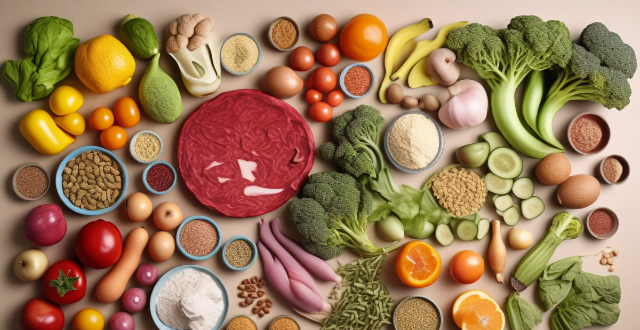
How can a healthy diet improve women's reproductive health ?
A healthy diet is crucial for women's reproductive health, affecting fertility, pregnancy, and menstrual health. Essential nutrients like folic acid and iron support conception and hormone regulation. Calcium, vitamin D, and magnesium can reduce PMS symptoms, while iron-rich and antioxidant-rich foods improve period health. During pregnancy, nutrients like folic acid and iodine are crucial for fetal development, and fiber and hydration maintain maternal health. A balanced diet can also prevent gynecological issues like fibroids and ovarian cysts. Additionally, weight management and mental health through a healthy diet promote overall well-being. Consulting healthcare professionals for personalized dietary advice is recommended.

What kind of diet do celebrities follow for a healthy lifestyle ?
Celebrities often follow specific diets to maintain their health and appearance, including the Mediterranean, Vegan, Paleo, Keto, Intermittent Fasting, Juicing, Plant-Based, Clean Eating, DASH, and Mindful Eating diets. These diets offer various benefits such as weight loss, improved heart health, better digestion, and enhanced mental clarity. Celebrities like Jennifer Aniston, Beyoncé, Matthew McConaughey, Halle Berry, Hugh Jackman, Salma Hayek, Ellie Goulding, Gwyneth Paltrow, Queen Latifah, Adele, and Jennifer Lawrence have incorporated these diets into their lifestyles.

Are there any potential side effects of switching to a gluten-free diet ?
Switching to a gluten-free diet can have several potential side effects, including nutrient deficiencies, digestive issues, weight gain, headaches and fatigue, and higher cost. It is important to be aware of these potential side effects and take steps to ensure adequate nutrition on a gluten-free diet. Consultation with a healthcare professional is recommended before making any significant changes to your diet.
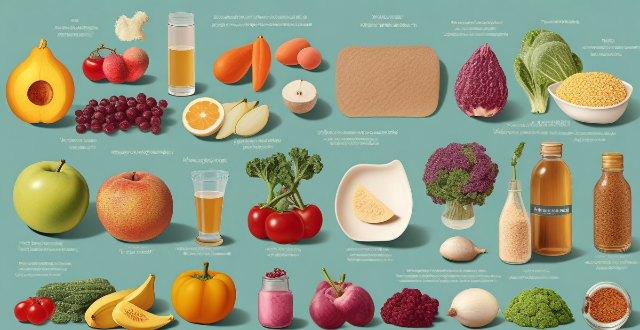
What are the potential risks associated with a high-fat diet ?
A high-fat diet, particularly one rich in saturated and trans fats, can pose several health risks. These include an increased risk of cardiovascular disease, obesity and weight gain, type 2 diabetes, liver disease, cancer, and digestive issues. It is essential to maintain a balanced diet that includes healthy fats while limiting the intake of saturated and trans fats found in processed foods and fried foods.

Which diet plans do celebrities follow to keep themselves fit and healthy ?
Celebrities are often seen as epitomes of fitness and health, inspiring millions to follow their lifestyle choices. One of the most significant aspects of their routine is their diet plan. Let's take a closer look at some popular diet plans followed by celebrities to maintain their physique and overall well-being: 1. Intermittent Fasting 2. Plant-Based Diet 3. Ketogenic Diet 4. Mediterranean Diet 5. Juicing Diet

How much exercise do I need to maintain good cardiovascular health ?
Maintaining good cardiovascular health requires regular exercise, with the American Heart Association recommending at least 150 minutes of moderate-intensity aerobic activity or 75 minutes of vigorous-intensity aerobic activity each week, along with two or more days of muscle-strengthening activities. The amount of exercise needed may vary depending on individual needs and fitness level, and other lifestyle factors such as diet, stress management, sleep, and avoiding smoking and excessive alcohol consumption can also contribute to good cardiovascular health.

Can exercise prevent osteoporosis ?
Exercise plays a crucial role in maintaining healthy bones by increasing bone density and strength. Effective exercises for preventing osteoporosis include weight-bearing exercises, strength training, balance exercises, high-impact exercises, and flexibility exercises. Incorporating these exercises into your routine can help reduce the risk of osteoporosis and maintain strong bones throughout your life.
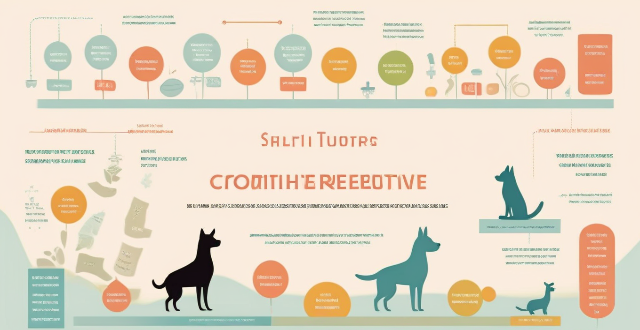
How do I recognize if my pet is overweight and what can I do about it ?
This article provides a comprehensive guide on recognizing if your pet is overweight and outlines steps to manage and potentially reverse the issue. It includes visual checks like Body Condition Score (BCS) and waist and rib checks, as well as behavioral cues such as decreased activity level and difficulty in movement. The solutions involve diet management, including consulting a veterinarian, providing a balanced diet with portion control, regular exercise, health monitoring, mental stimulation through puzzle toys and training, and maintaining consistency in care. The text emphasizes the importance of patience, consistency, and adaptability in managing pet weight issues.

Can following a vegetarian or vegan diet be considered healthy ?
A vegetarian or vegan diet can indeed be considered healthy, but it depends on how well-planned and balanced the diet is. Here's a detailed analysis: ## **Nutritional Requirements** ### *Protein* Vegetarians can get protein from sources like beans, lentils, tofu, tempeh, and dairy products. Vegans need to rely on plant-based proteins such as legumes, grains, nuts, and seeds. ### *Iron* Plant-based sources of iron include leafy greens, beans, and fortified cereals. However, the absorption rate of non-heme iron (from plants) is lower than heme iron (from animals). Consuming vitamin C-rich foods can enhance iron absorption. ### *Calcium* Vegetarians can get calcium from dairy products. Vegans need to find sources like fortified plant milks, tofu, and certain greens. ### *Vitamin B12* This nutrient is only found naturally in animal products. Vegetarians who consume dairy or eggs don't usually have a deficiency, but vegans must rely on fortified foods or supplements. ### *Omega-3 Fatty Acids* Flaxseeds, chia seeds, hemp seeds, and algae-based supplements are good sources for vegans. Vegetarians can also get it from fish. ## **Potential Health Benefits** - **Lower Risk of Chronic Diseases**: Studies show that vegetarian and vegan diets can reduce the risk of heart disease, high blood pressure, type 2 diabetes, and obesity. - **Healthier Weight**: Plant-based diets tend to be lower in calories and higher in fiber, leading to better weight management. - **Rich in Antioxidants**: Fruits, vegetables, whole grains, and legumes are rich in antioxidants, which help fight inflammation and cellular damage. ## **Challenges and Considerations** - **Nutrient Deficiencies**: Without proper planning, vegetarians and especially vegans may face deficiencies in certain nutrients like vitamin B12, iron, calcium, and omega-3 fatty acids. - **Limited Food Choices**: Avoiding entire food groups can make meal planning more challenging and limit variety. - **Social and Cultural Factors**: Eating out or attending social events where vegetarian or vegan options are not readily available can be difficult. ## **Conclusion** Adopting a vegetarian or vegan diet can be very healthy if it is well-planned and balanced to meet all nutritional needs. It's essential to ensure adequate intake of key nutrients that might be lacking in plant-based diets. Consulting with a registered dietitian can help individuals navigate these challenges and create a sustainable, healthy eating plan.

Is it necessary to follow a high-protein diet for strength training
A high-protein diet can be beneficial for strength training, but it is not absolutely necessary as long as enough protein is consumed to support muscle growth and repair. Reasons for a high-protein diet include muscle repair and growth, increased metabolism, satiety, and improved recovery. However, the amount of protein needed varies based on individual factors, and general guidelines for intake during strength training are 0.8-1.2 grams per kilogram of body weight, with a source of protein consumed within 30-60 minutes after a workout. High-quality sources of protein should also be chosen.

Is it safe to start an exercise program if you have a history of heart problems ?
Starting an exercise program is generally beneficial for overall health, but it's important to take precautions if you have a history of heart problems. Here are some factors to consider: 1. Consult with your doctor before starting any exercise program, especially if you have a history of heart problems. 2. Start slowly and gradually increase the intensity and duration of your workouts over time. 3. Choose low-impact exercises such as swimming, cycling, or yoga to improve cardiovascular health without putting too much strain on your heart. 4. Monitor your symptoms during and after exercise, and stop immediately if you experience any symptoms such as chest pain, shortness of breath, or dizziness. 5. Stay hydrated and nourished by drinking plenty of water and eating a healthy diet that includes plenty of fruits, vegetables, whole grains, and lean proteins.

What are the best foods to eat after a strenuous exercise session
After a strenuous exercise session, your body needs energy to recover and repair itself. Carbs are the best source of energy for your muscles and help replenish glycogen stores. Good sources of carbohydrates include whole grains, fruits, and vegetables. Protein is essential for muscle growth and repair after a workout. It helps rebuild damaged muscle tissue and increase strength and endurance. Good sources of protein include lean meats, fish, eggs, and plant-based proteins like beans and lentils. Water is important to stay hydrated and aid in recovery. Drinking water also helps flush out toxins from your body and prevent cramping. Exercise can cause electrolyte imbalances, which can lead to fatigue and cramping. Consuming foods rich in electrolytes like potassium, sodium, and magnesium can help restore balance and improve performance during recovery. Healthy fats are an important part of a balanced diet, especially after a workout. They provide energy for your body and help with hormone production and inflammation regulation. Vitamins and minerals are depleted during exercise, so it's important to consume foods that are rich in these nutrients during recovery.

What are some easy ways to reduce sugar intake in my diet ?
Reducing sugar intake is crucial for a healthy lifestyle. Here are ways to reduce sugar in your diet: read food labels, avoid sugary drinks, choose whole foods, cook at home, swap sweet treats for healthier options, limit added sugars in beverages, and gradually reduce sugar intake. By following these steps, you can significantly lower your sugar consumption and improve your overall health.

How can I incorporate more plant-based meals into my family's diet ?
Incorporating more plant-based meals into your family's diet can lead to improved health, weight management, and a reduced environmental impact. Here's how to do it: 1. **Understand the Benefits**: Improved health, weight management, and environmental sustainability are key advantages of a plant-based diet. 2. **Gradual Transition**: Start by replacing one or two meals per week with plant-based options to ease your family into the change. 3. **Meal Ideas**: Try Meatless Mondays, vegetable-centric dinners, and incorporating plant-based proteins like tofu and beans. 4. **Involve Your Family**: Get your family excited about the change by letting them choose recipes and shop for ingredients. 5. **Shopping Tips**: Buy fresh produce, stock up on staples like grains and legumes, and experiment with new foods. 6. **Education and Resources**: Use online resources like websites, YouTube channels, and cookbooks to learn about plant-based eating. 7. **Meal Planning and Preparation**: Plan weekly meals, consider batch cooking, and get creative with leftovers. 8. **Emphasize Flavor and Creativity**: Use herbs, spices, marinades, and sauces to add flavor, and don't be afraid to experiment with different cooking techniques.

How can sports education help prevent injuries and promote safe exercise habits ?
Sports education is crucial for preventing injuries and promoting safe exercise habits. It emphasizes proper warm-up and cool-down exercises, correct technique and form, safety equipment and gear, stretching and flexibility, hydration and nutrition, and rest and recovery. By providing athletes with the necessary knowledge, skills, and attitudes, sports education helps them avoid common mistakes that lead to injuries and develop healthy exercise routines.